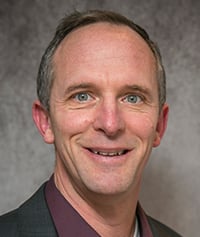Accounting For High Strength Waste In Commercial Wastewater Treatment System Designs
Posted on by Dennis Hallahan
We came across this informative article in Onsite Installer regarding a failing commercial system.
Many commercial systems have High Strength Waste (HSW). This article demonstrates a typical example of HSW with onsite systems. If the code does not account for HSW then the system lifespan will be greatly reduced. No surprise, I am sure that many of you have heard of typical longevity of restaurant system to be five years or so. Soil loading rates are based upon residential strength, hence HSW overloads the soil. This article is of a coffee shop originally designed per code and as a result had a very short life span. Once the influent characteristics were understood, a design was proposed for those conditions and problem solved! This does increase cost, so the owner has options (that the designer or contractor should explain); I can provide the minimum, a code compliant system that will last 5-10 years, or we can take into account your facility's HSW and custom design it to last 20+ years. It becomes an owner's decision.
Read: Failing Commercial System Traced to Coffee Shop Wastewater
Watch: Commercial High Strength Waste Stream Design Considerations
Read: Six Best Practices for High Strength Waste Designs
High Strength Waste Facility Design Recommendations and Best Practices White Paper
Infiltrator offers design guidance and assistance. If you have a project please contact our Technical Services team for assistance or use our Wastewater Plant Selection Tool.
About the Author:
 Dennis Hallahan, P.E.
Dennis Hallahan, P.E.
Technical Director
Dennis F. Hallahan, P.E., is the Technical Director of Infiltrator Water Technologies. Dennis has over twenty-eight years of experience with the design and construction of on-site wastewater treatment systems. He has authored several articles for on-site industry magazines and has given numerous presentations nationally on the science and fundamentals of on-site wastewater treatment systems. Dennis also oversees a department that is responsible for product research and testing for both Universities and private consultants. The department develops system sizing charts for national and international approvals and assists customers and field representatives in the planning and review of large decentralized systems. He received his MS in civil engineering from the University of Connecticut and his BS in civil engineering from the University of Vermont. Dennis is a registered professional engineer in Connecticut. He has been with Infiltrator for over 16 years and in his current position as Technical Director, he is responsible for the technology transfer between Infiltrator and the regulatory and design communities. Dennis also holds several patents for on-site wastewater products. Member ASCE, WEF, serves on the NOWRA Technical Practice and Educational Committees, also on the New England Water Environment Federation’s Small Community Committee.
